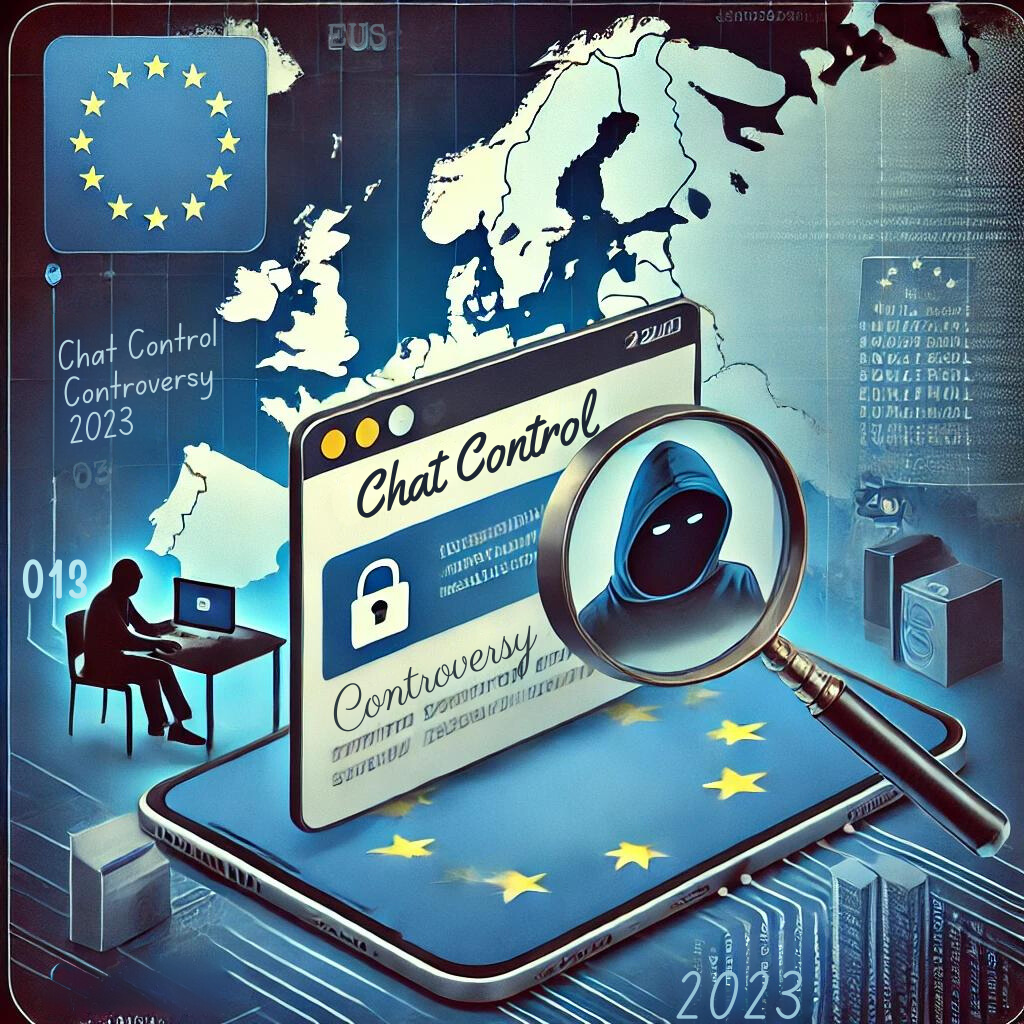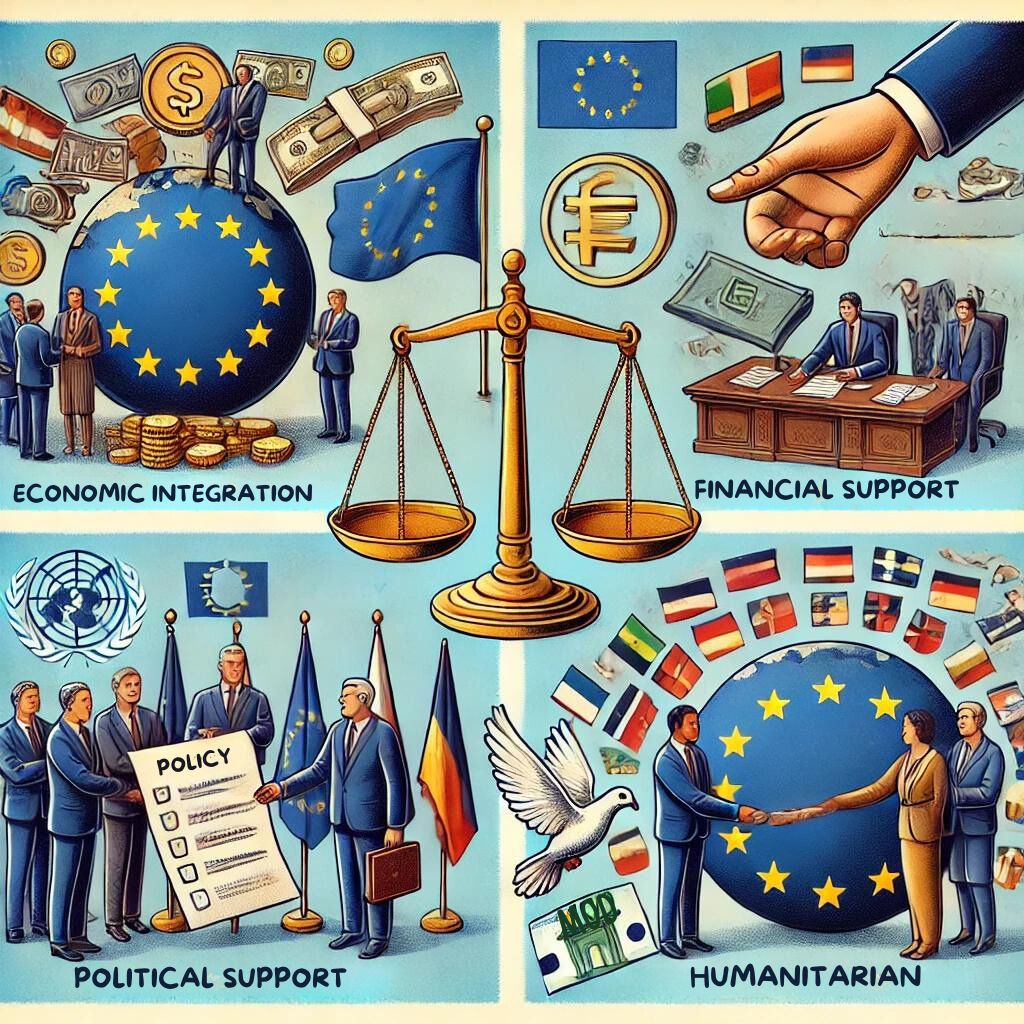The European Union (EU) is currently under the spotlight for its proposed ‘chat control’ law, designed to fight online child sexual abuse. This legislation has ignited a fiery debate across member states and beyond, with countries like France, Germany, and Poland, tech companies, and privacy advocates expressing deep concerns. At the heart of the controversy is the fear that the law could infringe on personal privacy by allowing the scanning of private messages. Critics argue this could pave the way for government surveillance and undermine the very foundation of online privacy.

Facts
– European Union’s Proposal: The EU is considering a ‘chat control’ law to fight online child sexual abuse by scanning shared photos, videos, and links.
– Privacy Concerns: Critics, including tech companies and privacy advocates, argue this law could undermine online privacy and lead to mass surveillance.
– EU Composition: The EU consists of 27 member countries, with 19 using the Euro. It was formed post-World War II to foster economic cooperation and prevent future conflicts.
– EU’s Objectives: Aims include promoting peace, economic prosperity, social progress, and protecting citizens’ rights among its member states.
– India-EU Relations: The EU is one of India’s largest trading partners. The relationship has evolved from financial assistance to a partnership focusing on common priorities.
– Chat Control Legislation Status: A revised draft will be reviewed, focusing on non-text content and possibly requiring user consent for scanning, raising concerns about real choice.
– Arguments Against the Legislation: Critics fear it will break encryption, infringe on privacy, risk security breaches, and potentially lead to the withdrawal of services like Signal from the EU.
– Global Implications: The legislation could set a precedent affecting countries worldwide, including India, with concerns about increasing surveillance in less democratic nations.
– Technological and Consent Issues: Experts note technological challenges in scanning without breaking encryption and issues with the notion of consent if refusing means losing access to services.
– Balance of Interests: The law aims to protect children online but faces significant opposition due to concerns over privacy rights and the potential for abuse.
What is EU?
Political and Economic Union
The European Union (EU) is a unique political and economic partnership between 27 European countries. It operates on a system that allows free movement of goods, services, capital, and people among member states. While 19 of these countries have adopted the Euro as their official currency, countries like Bulgaria, Croatia, Czech Republic, Denmark, Hungary, Poland, Romania, and Sweden have not. The EU’s primary aim is to foster economic cooperation, ensuring stability and prosperity for its members.
Formation Motivation
The inception of the EU was driven by a desire to prevent the recurrence of the devastating wars that Europe experienced, particularly World War II. By establishing a single market and promoting economic collaboration, the EU aimed to bind the countries together, reducing the likelihood of conflict and enhancing mutual benefits through shared prosperity.
Governing Institutions
The EU is governed by several key institutions, including the European Parliament, which plays a significant role in the EU’s law-making process. These institutions ensure that the operations and decisions within the EU are democratic and reflect the collective interests of its member states.
What Led to the Formation and Development of the EU?
Post-World War II
The foundation of the EU was primarily to prevent further wars in Europe. Initiatives like the European Coal and Steel Community (ECSC), established by the Treaty of Paris in 1951 with six countries, marked the beginning of economic cooperation aimed at ensuring long-term peace.
Integration and Expansion
Over the years, the EU has grown through the integration of new member states and the signing of treaties like the Treaty of Rome and the Maastricht Treaty. These treaties expanded the scope of cooperation and laid the groundwork for the Union as it stands today.
Challenges and Achievements
Despite facing significant challenges such as the Euro Crisis and Brexit, the EU has achieved notable successes, including receiving the Nobel Peace Prize in 2012 for its efforts in promoting peace and reconciliation in Europe.
What are the Objectives of the EU?
Promotion of Peace and Stability: At its core, the EU aims to maintain peace and stability among its member states, building a foundation for mutual trust and cooperation.
Economic Prosperity and Social Progress: The Union strives to ensure economic prosperity and social progress, emphasizing the significance of a single market and equality among its citizens.
Protection of Rights and Global Leadership: The EU is committed to protecting the rights of its citizens, establishing a common foreign policy, and asserting its influence on the global stage to promote its values and interests.
Environmental and Scientific Goals: Environmental protection and technological advancement are key objectives, reflecting the EU’s commitment to sustainable development and innovation.
What are the Functions of EU?

Economic Integration and Single Currency: The EU facilitates the free flow of goods, services, and labor, with the Euro playing a crucial role in simplifying trade and economic cooperation among member states.
Financial Support and Shared Standards: Through financial mechanisms and the standardization of policies, the EU supports its members economically while promoting shared values on human rights and environmental protection.
Political Influence and Global Trade: The EU leverages its political influence to maintain a balance between economic unity and national sovereignty, playing a leading role in global trade and diplomacy.
Humanitarian and Diplomatic Roles: As a significant donor of international aid, the EU actively engages in humanitarian efforts and diplomacy, promoting stability, democracy, and the rule of law worldwide.
How Cordial are EU’s Relations with India?
Partnership Evolution: The EU-India relationship has evolved from financial assistance to a strategic partnership, focusing on common priorities such as peace, economic growth, and sustainable development.
Trade Relations and Agreements: Trade dynamics and negotiations like the Bilateral Trade and Investment Agreement (BTIA) underscore the growing importance of EU-India relations, with trade figures reaching close to USD 90 billion, highlighting the EU as a key trading partner for India.
What is the Status of the EU’s Chat Control Legislation?
New Draft Review: The proposed ‘chat control’ law, aimed at combating online child sexual abuse, includes measures for scanning shared media, raising concerns about privacy and consent.
Controversies and Criticisms: Critics argue that the legislation could compromise privacy and encryption, leading to potential government surveillance and other unintended consequences.
What are the Key Arguments Against the Proposed Legislation?
Privacy and Encryption Concerns: The legislation’s impact on privacy and encryption is a major concern, with critics warning of the potential for mass surveillance and the undermining of digital security.
Risks of Abuse and Security Implications: There are fears that the legislation could be abused for political monitoring, posing significant risks to free speech and security.
Global Precedent and Technological Challenges: The global implications of the law, along with the technological limitations of implementing surveillance without compromising encryption, are significant points of debate.
Consent Issues and Alternative Solutions: The requirement for user consent and the exploration of alternative methods for protecting children online are critical aspects of the ongoing discussion surrounding the legislation.
Conclusion
In the intricate dance of safeguarding the innocence of children while preserving the sanctity of personal privacy, the EU’s ‘chat control’ law treads a fine line that has drawn a vivid divide among stakeholders. The apprehensions surrounding this proposed legislation—ranging from the erosion of digital privacy to the specter of omnipresent surveillance—underscore a pivotal moment in our ongoing negotiation with technology and governance. For judiciary aspirants, this presents a unique opportunity to reflect on the broader implications of such laws on democratic values, individual rights, and the role of the judiciary in mediating these complex intersections.
As future guardians of justice, it is imperative to critically assess not only the intent behind such measures but also their potential repercussions in both national and global contexts. Engaging with these debates enriches our understanding and equips us to navigate the nuanced terrain of law and technology, ensuring our readiness to uphold the principles of justice in an increasingly digitized world. This scenario exemplifies the vital role of judicious scrutiny in the face of legislative challenges, emphasizing the judiciary’s responsibility to balance public good with individual freedoms.

